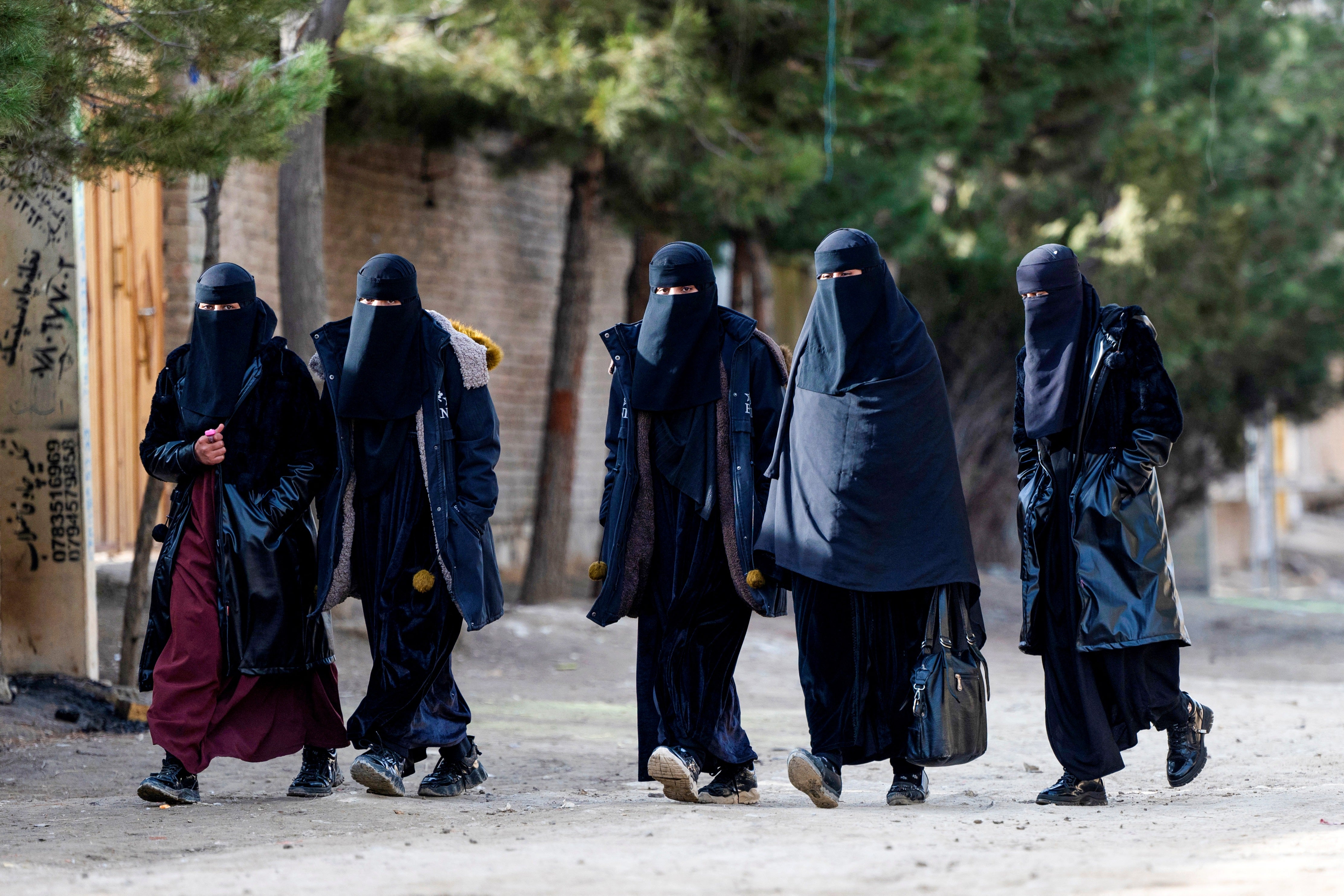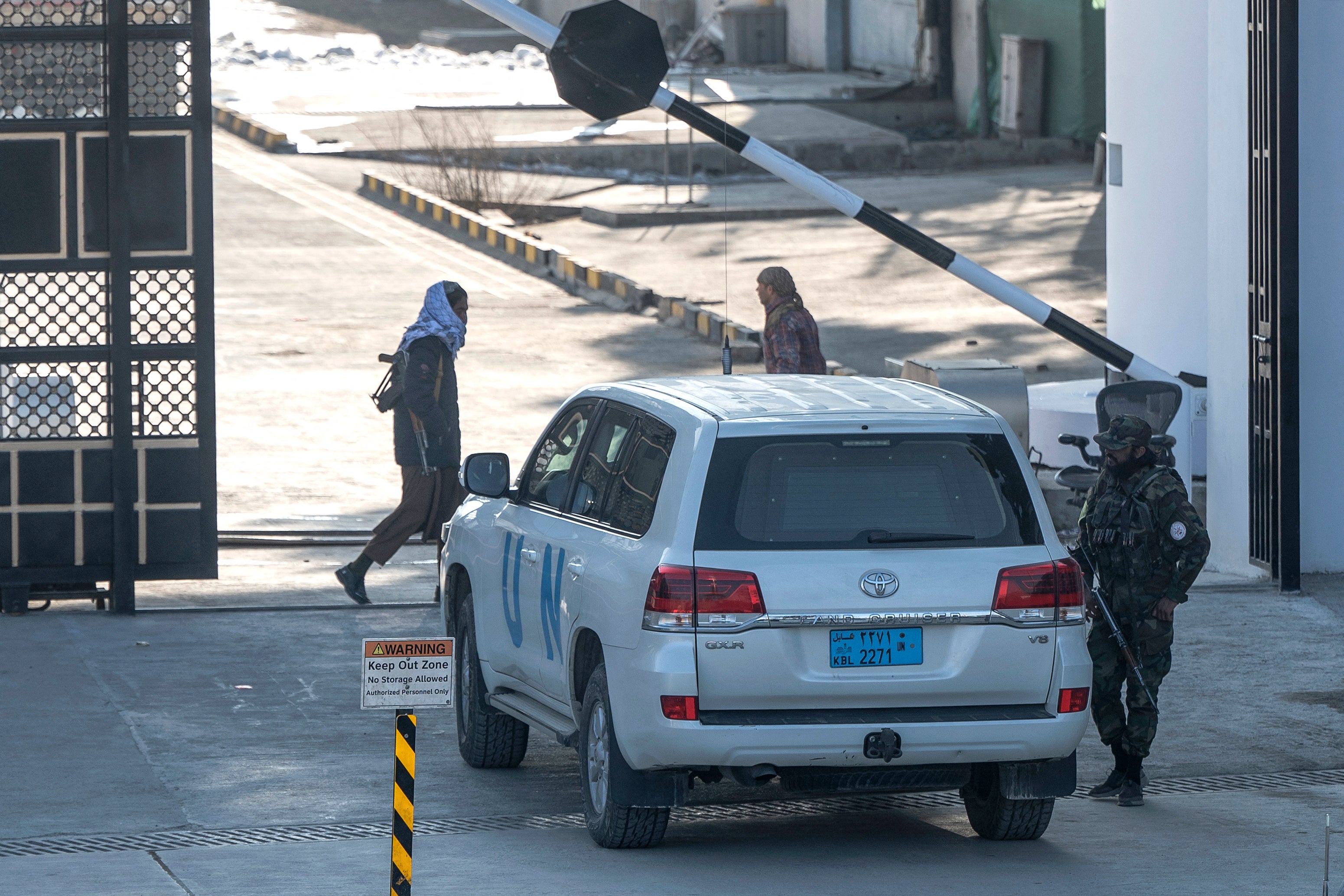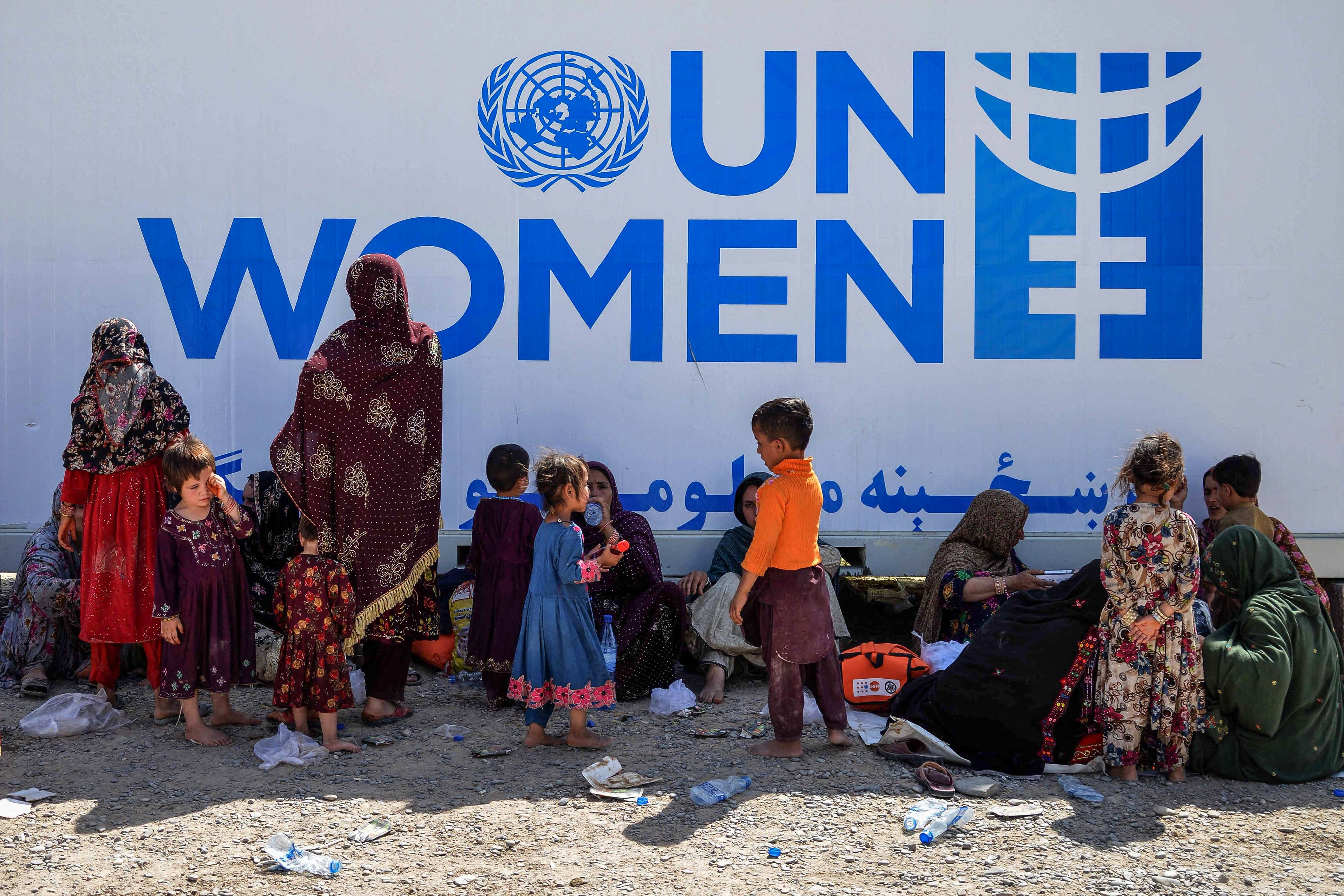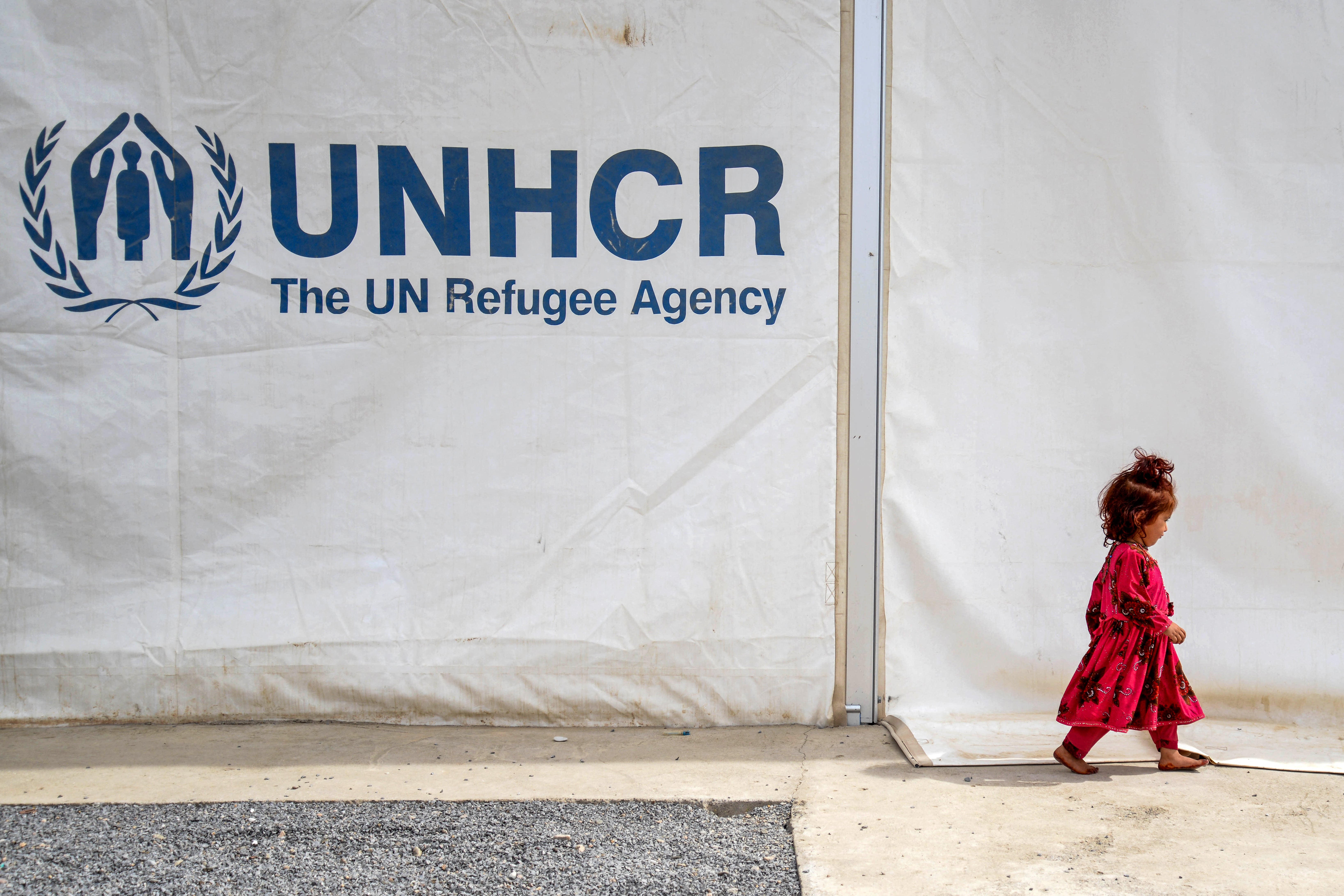Women working for UN in Kabul face stalking and death threats: ‘Don’t turn up tomorrow or you will be killed’
Taliban has denied involvement in what UN sources describe as a campaign of ‘coordinated harassment’

A number of female UN staff members in Kabul have been forced to stop working after being stalked and harassed by unidentified men in Afghanistan’s Taliban-ruled capital, a development that is impacting international aid projects in the war-torn nation.
Sources at at least three UN agencies in Afghanistan have described the incidents that took place in late May when their female staff members were followed home as they left a UN compound by a group of unidentified men in what they described as a campaign of “coordinated harassment”.
The men issued graphic death threats to the women, all Afghan nationals working for international agencies, and also threatened their male family members, The Independent has learnt.
In the absence of a functioning economy in Afghanistan under the Taliban regime, UN aid agencies have worked flat-out to meet humanitarian needs in the country since the Nato withdrawal in August 2021. Such projects are providing critical aid, food and money through a host of development programmes.
A decree by the Taliban authorities in April 2023 banned women from most workplaces in the country, claiming that it goes against their interpretation of Sharia law. UN secretary-general Antonio Guterres said at the time that “any such ban would be unacceptable and frankly, inconceivable” as he expressed concern for the safety of the workers.
Speaking about the recent incidents in Kabul, a UN source speaking on condition of anonymity said: “They were stopped outside their homes and were threatened in relation to their working for the UN by these men who told them to not return to work the next morning, otherwise they would be killed.

“The armed men who followed the UN staffers for two days also forced male relatives at gunpoint to stop their daughters, wives or sisters from working. They also made video recordings of the forced assurances,” the sources told The Independent.
The Independent understands that the women involved, who could not give interviews due to concerns for their safety, have had their work restricted while the harassment is ongoing.
Officials said they had approached Taliban leaders in Kabul, who have denied responsibility for these unidentified men and their threats.
“Several United Nations female national [Afghan] staff members in the Afghan capital Kabul have been subjected to threats by unidentified individuals related to their work with the UN. The matter has been raised with the de facto authorities, who have said they are investigating these incidents,” the United Nations Assistance Mission in Afghanistan (UNAMA) told The Independent in a statement.


“In the light of these extremely serious threats, UN agencies, funds, and programmes in Afghanistan have made interim operational adjustments to ensure the safety and security of staff members, while continuing to strive to work in support of the people of Afghanistan,” UNAMA said.
Similar protocols involving work from home have been implemented by the UN’s World Food Programme (WFP), a lifeline responsible for the nutrition of millions of Afghans.
“On a number of recent occasions, female staff working for international organisations in Kabul have faced intimidation and threats from unidentified individuals warning them not to report to their offices. Out of an abundance of caution, WFP has advised female staff to temporarily work from home,” the agency said.
The global food agency said its operations continue to reach out to vulnerable women-led families.
“WFP and its partners – including female staff – continue to reach tens of thousands of hungry families with food assistance, prioritising the most vulnerable women-headed families. Women continue to pick up their entitlements at distribution sites and last year, WFP reached nearly 10 million women and children across Afghanistan,” the agency told The Independent.
Under the Taliban’s misogynist regime, where women are banned from most public spaces and from interacting with men outside of their household, having local female staff members has proved essential for international agencies to get aid to those in need.
UN aid serves at least 23 million men, women and children out of the total population of about 40 million in Afghanistan.
UN sources said female Afghan staff represented a core part of their operations, from delivering food and medicine to running general operations. “As a result of the vivid death threats, a part of our workforce will no longer be able to travel freely or work,” one official in Kabul said.
The Taliban’s de facto interior ministry confirmed that it was aware of the reports of harassment, telling The Independent: “The ministry of interior gives full assurance that we are aware of them and no one has the right to warn or threaten United Nations employees, whether men or women. Any person or individuals who do so will be severely punished.”
Join our commenting forum
Join thought-provoking conversations, follow other Independent readers and see their replies
Comments